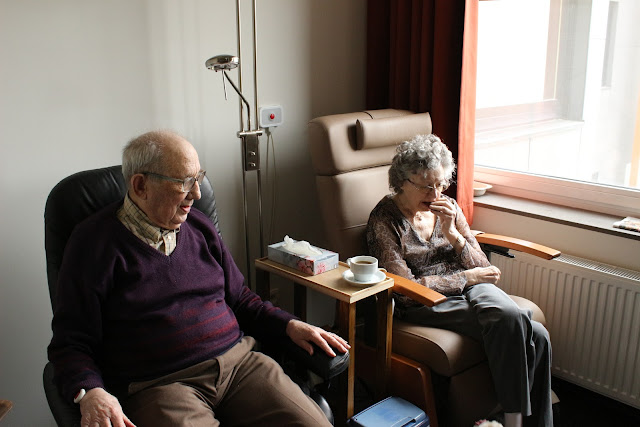Caring for elderly relatives and ensuring they spend their days in a dignified manner is important. Talk with your family members to discuss their wishes for their end of life care and funeral preparations. As difficult as it is to have these conversations, it is well worth it to have everything planned as early as possible to get their input while they are able. Planning will ease the burden on family and friends when the time comes.
A home for family members
Many families have an elderly family member to care for during their later years, and need to get educated on
how to care for the elderly at home. Typically, the younger relatives of the elderly person help care for them or help them plan their care. If the family is large, with many children or grandchildren of the elderly family member, there might be a need for conversations about
palliative care and who will be the primary caretaker or point of contact for their care.
Some families wish to have their family member live with them. Depending on their needs, this might require one adult to stay at home around the clock. If you plan to do this, learn as much as possible about their illness or disability before making the commitment to care for them long-term. It could be that you hire additional help from a professional care team, to help support and care for your loved one at home and perhaps offer a little respite for you and your family members. If this is the case, it is imperative that accurate
care notes are taken so that all caregivers can pass on details of the care given, progress made, and medications administered. Remember to encourage their independence while caring for them. Seek out devices and technology to allow them as much independence as possible.
While caring for your family member, limit yourself to only things you feel qualified to do and always ask a doctor’s advice when needed. It is understandable to ask a family member or healthcare professional for help. There will likely be times when you feel overwhelmed. Take time to yourself and seek counseling or join support groups to connect with others caring for a family member. Consider home health aides or adult day care for seniors to take a break. Keep in mind that some employers in certain states provide family leave programs. These leave programs usually allow several weeks of leave time from your job per year.
Another option is to consider a care home that meets the needs of your family member. There are care homes designed to look after those who need around the clock care, such as people with Alzheimer’s, and there are care homes similar to apartment homes that provide on-site medical assistance. Care homes can provide socialization for your family member while allowing you to focus on
your own needs and existing obligations, like work and children. You and your family member will need to decide how to pay for their care. This might involve selling their home or reducing your inheritance.
Financial planning
The financial future of your family member and making their will are things that should be discussed as early as possible so there is no question about their wishes later. Have a conversation with your family member and make sure they have a will. It is important to have their assets clearly allocated.
Meet with your family member’s financial planner or set up a meeting with one to discuss your questions. Consider their care, guardianship, property, assets, and estate planning including wills and trusts. Take into account their debt, income, expenses, and benefits. The last thing you want is to not have their debt under control and allocated appropriately. If you need some beginner guidance,
Creditful.com is a great resource to start. Financial planners and lawyers are well versed in their area of expertise, so they can help your loved-one determine how to manage their finances for end of life and their estate.
End of life plans
Talking about end of life for your elderly family member might be difficult for you, your family, and for them. Plan to avoid feeling rushed and stressed when making plans during a time of grief at the end of their life. Discuss how they want to handle their end of life care and funeral preparations. Talk with them to determine whether they would like a casket burial or cremation services. Plan a time when they are able to meet with a provider, like
Dallas funeral services, to discuss all of their options.
A burial with a casket funeral can offer many fine details, while cremation provides a dignified and affordable option. Loved ones might like an open casket funeral. Others might prefer cremation and a ceremony scattering the ashes at a memorable location. Either option allows for a respectful service. The loved ones left behind should also have important documents such as
transfer of death deeds, documents for an obituary, and other certificates needed at hand.
Caring for your elderly family members is personal and involves many different aspects to consider. Planning for the future is never emotionally easy, but the benefits to planning early outweigh the emotional toll that comes with waiting until the end of life. Gather your family and have conversations about the future. Preface the conversation by expressing that these discussions come from a place of love and caring.







